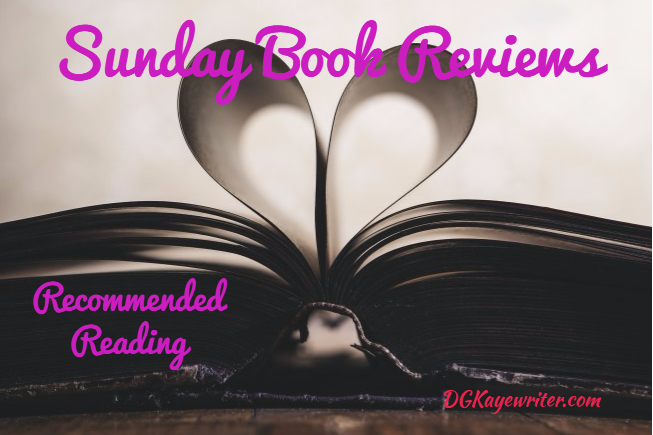Sunday Book Review

Today’s book review is on memoir writer, Melanie Brooks’ book – Writing Hard Stories. I always try to read a book on my craft in between reading other genres I enjoy too. I was drawn to this book, not only for its whimsical cover (covers do attract), but for the content of the book, which is a series of interviews the author conducted with other more well known memoir writers. Brooks was searching for the heart of why and how each writer goes about writing their memoirs – what inspires them, how they get over the tough parts to write, overcoming fears of featuring people in their lives and how their work will be accepted.
Blurb:
Some of the country’s most admired authors—including Andre Dubus III, Mark Doty, Marianne Leone, Michael Patrick MacDonald, Richard Blanco, Abigail Thomas, Kate Bornstein, Jerald Walker, and Kyoko Mori—describe their treks through dark memories and breakthrough moments and attest to the healing power of putting words to experience.
What does it take to write an honest memoir? And what happens to us when we embark on that journey? Melanie Brooks sought guidance from the memoirists who most moved her to answer these questions. Called an essential book for creative writers by Poets & Writers, Writing Hard Stories is a unique compilation of authentic stories about the death of a partner, parent, or child; about violence and shunning; and about the process of writing. It will serve as a tool for teachers of writing and give readers an intimate look into the lives of the authors they love.
Insights from Writing Hard Stories – Melanie Brooks
“Why we endeavor collectively to write a book or paint a canvas or write a symphony…is to understand who we are as human beings, and it’s that shared knowledge that somehow helps us to survive.”—Richard Blanco
“Here’s what you need to understand: your brothers [or family or friends] are going to have their own stories to tell. You don’t have to tell the family story. You have to tell your story of being in that family.”—Andre Dubus III
“We all need a way to express or make something out of experiences that otherwise have no meaning. If what you want is clarity and meaning, you have to break the secrets over your knee and make something of those ingredients.”—Abigail Thomas
“What we remember and how we remember it really tells us how we became who we became.”—Michael Patrick MacDonald
“The reason I write memoir is to be able to see the experience itself…I hardly know what I think until I write…Writing is a way to organize your life, give it a frame, give it a structure, so that you can really see what it was that happened.”—Sue William Silverman
“After a while in the process, you have some distance and you start thinking of it as a story, not as your story…It was a personal grief, but no longer personal…[It’s] something that has not just happened to me and my family, but something that’s happened in the world.”—Edwidge Danticat
“Tibetan Buddhists believe that eloquence is the telling of a truth in such a way that it eases suffering…The more suffering that is eased by your telling of the truth, the more eloquent you are. That’s all you can really hope for—being eloquent in that fashion. All you have to do is respond to your story honestly, and that’s the ideal.”—Kate Bornstein
“You can never entirely redeem the experience. You can’t make it not hurt anymore. But you can make it beautiful enough so that there’s something to balance it in the other scale. And if you understand that word beautiful as not necessarily pretty, then you’re getting close to recognizing the integrative power of restoring the balance, which is restoring the truth.”— Richard Hoffman
My 5 Star Review:
I read this book about Brooks’ journey to seek out and learn about some esteemed memoir writers to learn about their journeys to writing memoir. Brooks was seeking the essence of how they go about writing their stories, what are the hurdles for them – the most difficult parts, how they feel their work will be received, and will their stories connect with readers and possibly help readers with their own similar journeys in their lives. As a memoir writer myself, I was absorbed into all the stories.
There is a commonality with memoir writers – the journaling, the scattered notes and journals splayed around our living spaces, the pain on the pages relived, the coming to terms with how we’ve been abused, injured, slighted, or triumphed in life in some way. Many of us memoir writers start out wanting to fictionalize our stories, sometimes afraid to step up and own them personally, only the brave step up to the plate and write our own truths. Read this book and find out how various writers hone their craft.
I also want to share for my readers, some memorable lines I took from some of these stories:
Andre Dumas: “Don’t leave out the family from your story. Tell your truth as you remember it.”
Sue William Silverman: “It’s like writing that pressure out of the pressure cooker. Each word that comes out is like taking a little piece of pain with it and putting it on the page.”
Richard Hoffman: “. . . writing and publishing are two different things. Don’t confuse them. As soon as you start thinking, ‘Well I could never publish that then the censor is right in the room with you with a pencil crossing stuff out . . .”
Suzanne Strempek Shea: “. . . how much easier it is to look at what you’re hiding from them to keep it in the basement. It’s much scarier, has much more power in the dark than brought up to the light.”
Mark Doty: “It’s nice to get a compliment or have your writing praised, but when somebody can say, ‘Your book showed me this,’ or ‘This is what I got from it,’ that’s what I love most.”
Edwidge Danticat: On not talking about her WIP “I feel very vulberable where it’s happening if they criticize, it might lead you to kill something because you are giving more value to their opinion than perhaps even they are.”
Jerald Walker: “Will I get tired of writing about my own experiences? And I think the answer is no. As long as there are people in my orbit who I think deserve some attention, I like being the vehicle to deliver it.”
Kate Bornstein: “Tibetan Buddhists believe that elopquence is the telling of truth in such a way that it eases suffering. And the more suffering that is eased by your telling the truth, the more eloquent you are.”
Melanie Brooks: “During a presentation I attended at the Miami Beach Fair, Mary Karr said, ‘Writing memoir, if it’s done right, is like knocking yourself out with your own fist.’ In one sentence, she summed up what we all discover when we venture into this territory: writing hard stories is excruciatingly hard work!”
Allan Hunter: “Pain is like a stone. If you put it in your pocket, it weighs nothing at all. If you put it inside your shoe, it will cripple you. The same little bit of pain. You are moving the grief from where it is doing no good to the place where you can carry it more easily.”
Melanie Brooks: “We find language to unravel the complexities of what happened, and we re-stitch those complexities into narratives that can become meaningful to others. And those are the narratives that have the potential to give others the courage to find their own.”



















